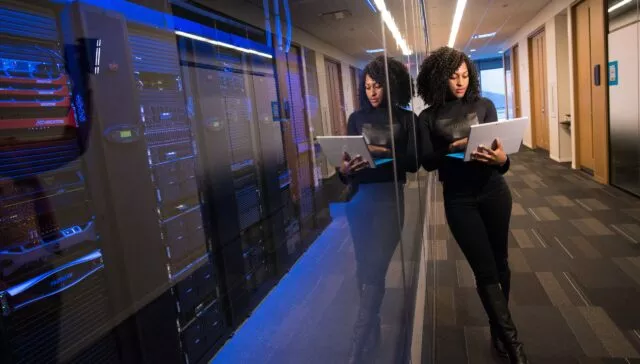Utilizing technology to conduct online therapy sessions

For years, there has been a struggle to get the right mental health care to those in need, whether that be due to a lack of local resources or therapists with limited availability. But with a steady increase in online therapy, the hope is that many of these issues can start to be resolved.
Virtual therapy appointments have been on the rise since the start of the COVID-19 pandemic. A recent survey found that nearly 40% of mental health and substance use outpatient visits were held using telehealth during the peak of the pandemic (March-August 2020). Prior to that, they only represented less than 1%. Even now, online therapy is used for 36% of these outpatient visits.
It’s a trend that researchers are continuing to explore to better understand both the benefits and drawbacks. Take Boston University School of Public Health’s Dr. Megan Cole and her team of researchers for example. They are looking to understand if all telehealth options (not just mental health ones) lower costs and improve access for historically underserved patients, or if it only furthers those disparities due to factors like a lack of internet access or language barriers.
While work still needs to be done in order to get more definite answers, let’s start unpacking the pros and cons of online therapy sessions.
Online therapy meets patients where they are
Gone are the days of needing to walk, drive, or use public transportation to get to your appointments. With online therapy, patients are able to take their appointments from any space of their choosing. The same can be said for mental health practitioners. During the pandemic, 96% of clinical psychologists found that telehealth care was effective, and 93% said they intended to continue online therapy sessions as an option for patients going forward.
However, not all virtual offerings will be the same. Some therapists allow patients to chat outside of virtual calls if needed, whether that be via email or text. Furthermore, while some may offer live chat sessions, others may only offer chatbot or AI options. Studies have shown that online therapy chatbots can be effective, but they may not always be able to measure up the same as talking with a real human. Messaging may cause a risk of miscommunication between therapists and patients as well due to the lack of body language and non-verbal cues.
Despite the accessibility of online therapy sessions, it is important to emphasize that it is only available to patients that have the tools and resources to accommodate these virtual appointments. While it may seem like everyone has a smartphone and internet access, it still varies from place to place. Several barriers exist regarding technological ability and access, perpetuating a digital divide and health inequities within certain groups nationwide, especially vulnerable populations.
More representation to help understand mental health issues
Online therapy increases access to care for underserved communities – such as people of color and those in rural areas. From 2019 to 2020, Mental Health America (MHA) reported nearly 21% of adults were experiencing mental illness which is equivalent to more than 50 million Americans. More than half of adults (54.7%) did not receive treatment.
In some cases, online therapy can be cheaper than in-person therapy, making it more accessible for that reason. According to MHA, 42% with the area median income (AMI) reported they couldn’t receive care because they couldn’t afford it. It may also be covered by insurance plans in ways more fully than others.
By working with these underserved communities, therapists and researchers can gain a better understanding of the impact of mental health issues, what factors help or hinder care, and which treatment options work best. This vital information can then be used by policymakers to ensure the right resources are being allocated to mend the gap.
Help support public health solutions
Whether it be improving access to mental health care or protecting communities against the impacts of severe weather events, working with idea hub can help find solutions to some of our most pressing public health problems. To learn more, download our program overview or contact us today.




